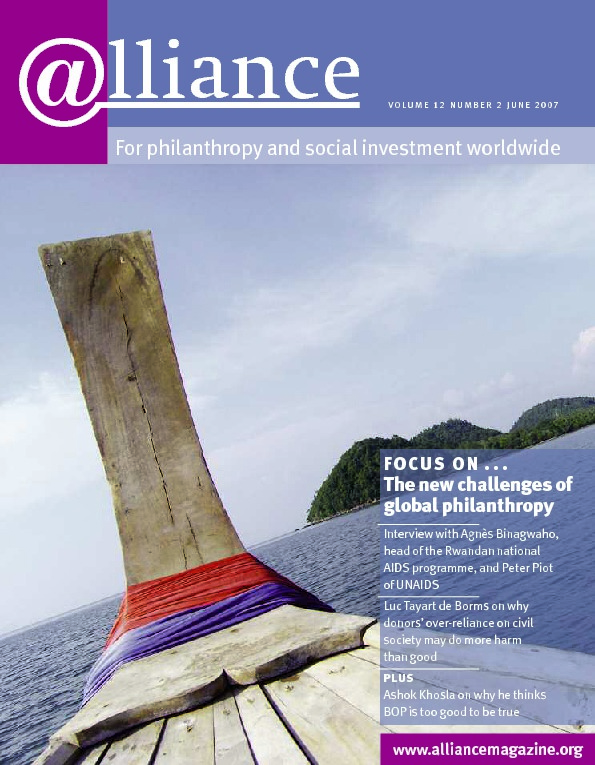Although corporate social responsibility (CSR) is a concept that is on the increase in Argentina, it is still little known in Argentine society generally and few companies have begun to act seriously upon it. CSR made some strides during the 1990s, but the country’s major economic, political, institutional and social crises of 2001 posed a major obstacle to its further strengthening, preventing the design of long-term strategies.
What the crisis did do, however, was to make people more aware of the important role to be played by everyone in its resolution. The concept and practice of CSR gained renewed impetus, not only at institutional level but through the personal initiative of company employees, who began to help, first spontaneously and afterwards by participating in corporate volunteering programmes. It also threw the emphasis of CSR activity on one thing: the relationship between companies and their communities, which meant that it tended to manifest itself as assistance and traditional charity-based philanthropy.
After the 2001 crisis
Once the country began to recover, companies initiated medium and long-term strategies which included other aspects of CSR such as environmental protection, sustainable development, relationships with its various stakeholders, accountability, the development of employees and their families, and a more professional approach to social action. However, CSR remained rooted in traditional areas of involvement: basic education, poverty eradication, child development, health awareness.
Subsequently, companies have begun to institutionalize the whole process, designating special areas for corporate giving and creating budget lines for the development of CSR strategies. According to the most recent survey data,[1] 86 per cent of companies have a code of ethics; one-third issue social reports or balance sheets based primarily on the Global Reporting Initiative model; 46 per cent have certificates of quality, related mainly to the environment. In addition, 273 companies have signed the Global Compact agreement. Another index of the growth of CSR is the fact that there are six CSR awards in Argentina.
However (with all these positive trends, a caveat must be introduced), it has been essentially the big companies that have taken action. Awareness of these issues still needs to be raised among smaller companies.
Business organizations and chambers are strongly committed to promoting CSR practices within their membership. Organizations specializing in CSR, such as the Argentine Institute of Corporate Social Responsibility (IARSE) and the local chapter of the World Business Council for Sustainable Development (CEADS), have developed an understanding and application of CSR practices within Argentina. The Brazilian example, where the Ethos Institute is very active, has been important in this regard.
While the general trend is for companies themselves and the business organizations to approach CSR with greater professionalism, and academia has begun to take notice, there aren’t yet any university courses or postgraduate studies on the subject.
Media and public sector attitudes
But the press has begun to take notice. In published magazine rankings of leading companies in Argentina, CSR is starting to be one of the items taken into account. However, it remains for journalists a side issue. It is largely ignored by TV and only journalists specializing in social issues take much note of it. This in part explains why the Argentine people remain so uninvolved in issues like fair trade or responsible consumption.
As for the public sector, only since the last election in 2003 has the government acknowledged the importance of CSR in developing a sustainable society, with collaborative projects between both public and private sectors.
Lastly, there is too little information, even about those companies which have already put CSR practices firmly on their agenda. We do not know, for instance, how many there are, what strategies they have taken, or the size of investments they have made. What little data that does exist comes from studies based on samplings or from published social reports issued by only the largest companies.
1 For further information on the latest CSR survey in Argentina, in 2005, from which the statistical data used in this article were gathered, go to http://www.iarse.org (downloads/studies and research)
Carolina Langan is General Coordinator of Grupo de Fundaciones – Argentina. Email mclangan@gdf.org.ar






Comments (0)